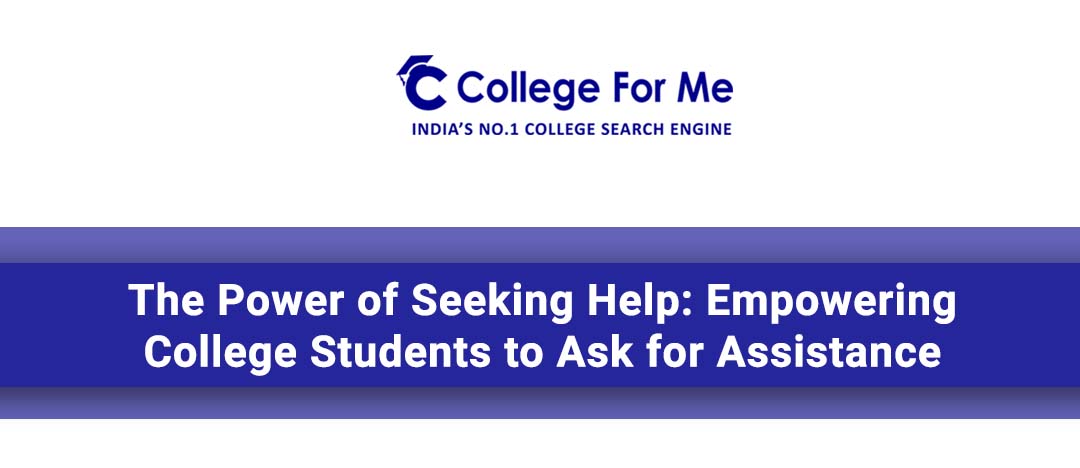Career Scopes Of A B.Tech. Student
There is a high demand for B.Tech. degree holders in the private sector, yet, there is also the opti...

Entering college marks a significant transition in one's academic journey, often accompanied by new challenges and responsibilities. Amidst the whirlwind of coursework, extracurricular activities, and social engagements, many college students find themselves grappling with various academic and personal obstacles. However, one skill that can make a significant difference in their success is the ability to ask for help. In this article, we will explore the importance of learning to ask for help as a college student and how it can positively impact academic performance, personal growth, and overall well-being.
Recognizing the Benefits of Seeking Help
Asking for help is not a sign of weakness or incompetence but rather a demonstration of self-awareness and resilience. By reaching out to professors, academic advisors, tutors, or classmates, college students can unlock a multitude of benefits.
Overcoming Barriers and Stigmas
Despite the evident benefits, many college students hesitate to ask for help due to various barriers and stigmas associated with seeking assistance. By addressing these concerns, we can foster a more supportive and inclusive environment.
Developing Effective Help-Seeking Strategies
To become proficient in asking for help, college students can adopt the following strategies:
Conclusion
Learning to ask for help is an invaluable skill for college students. By embracing this skill, students can navigate academic challenges, foster personal growth, and alleviate stress. It is crucial to normalize the act of seeking assistance, creating an inclusive and supportive environment that encourages students to reach out for help without fear of judgment. By recognizing the benefits and developing effective help-seeking strategies, college students can unlock their full potential and thrive in their academic journey and beyond.

There is a high demand for B.Tech. degree holders in the private sector, yet, there is also the opti...

If you are looking for a bright and prospective career, then getting a B.Tech. in CSE must be under ...
Comments (0)